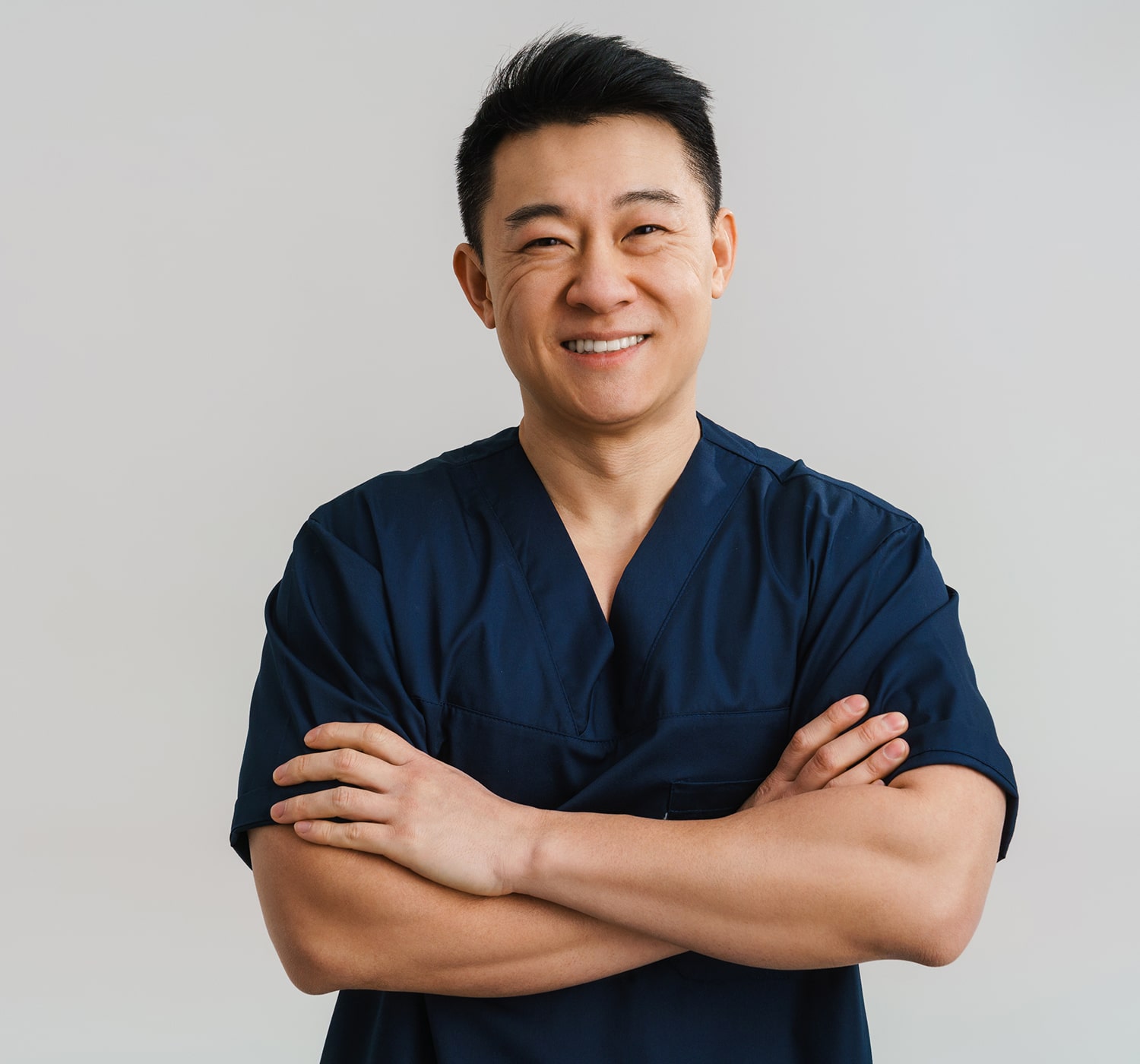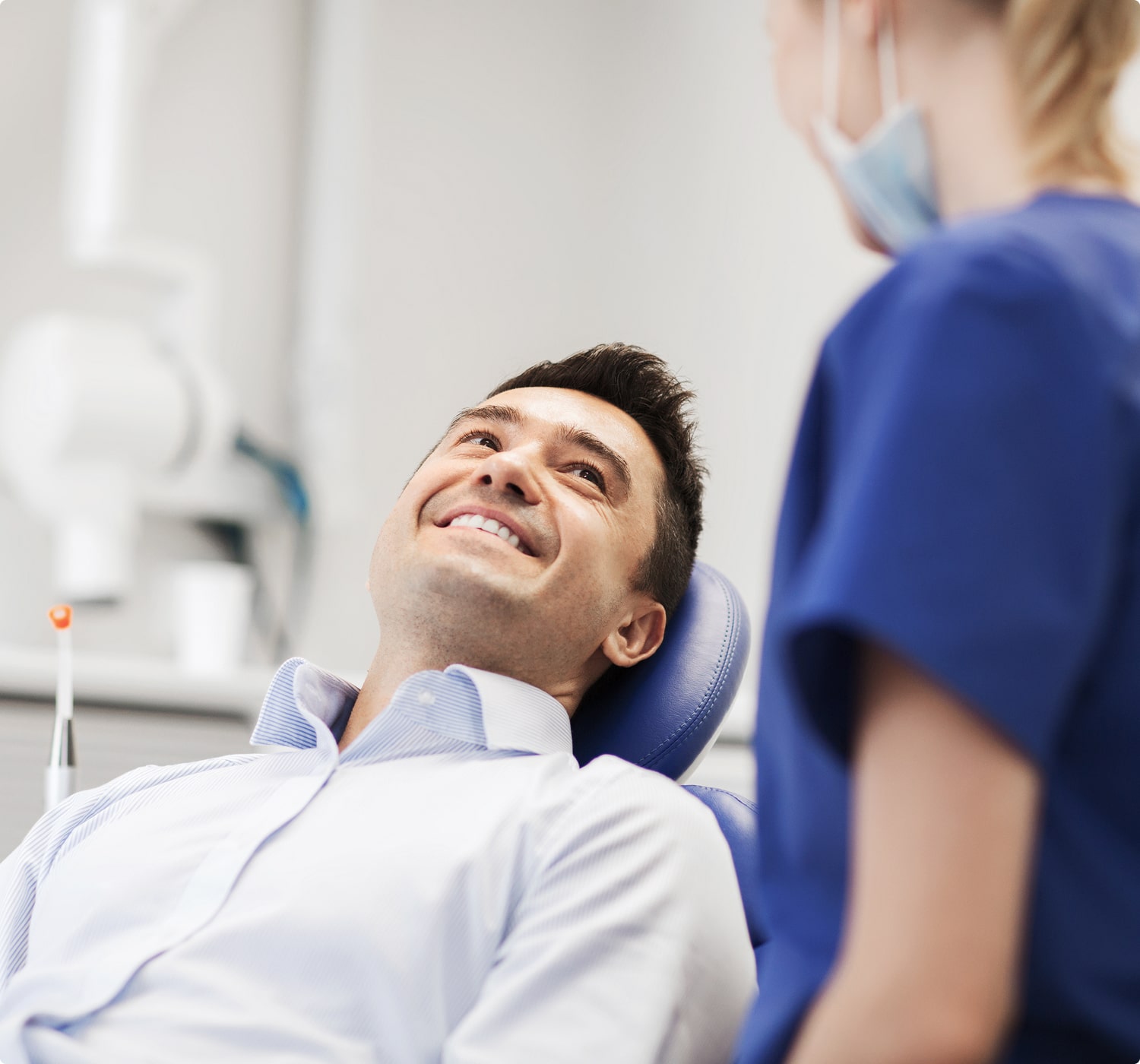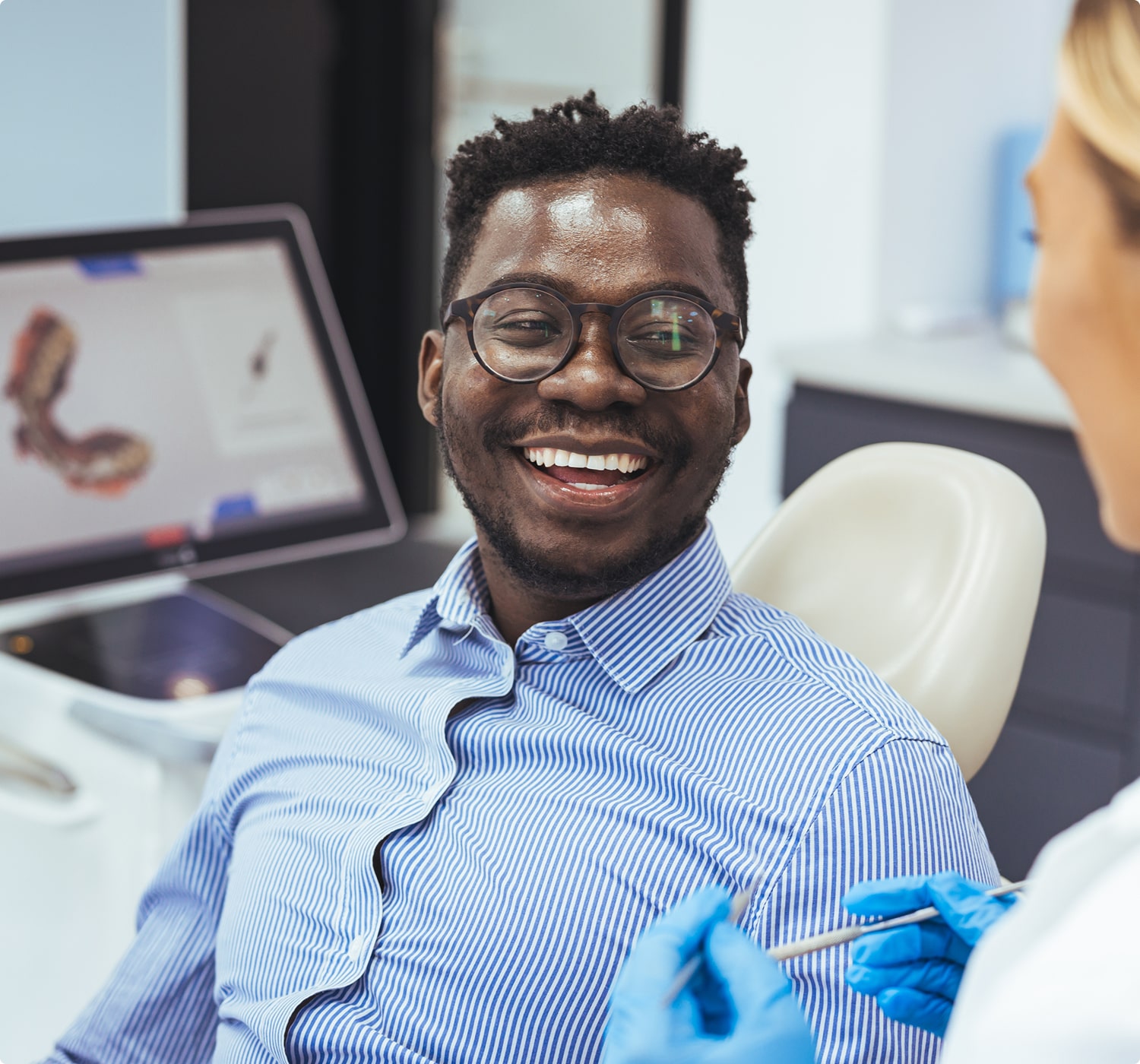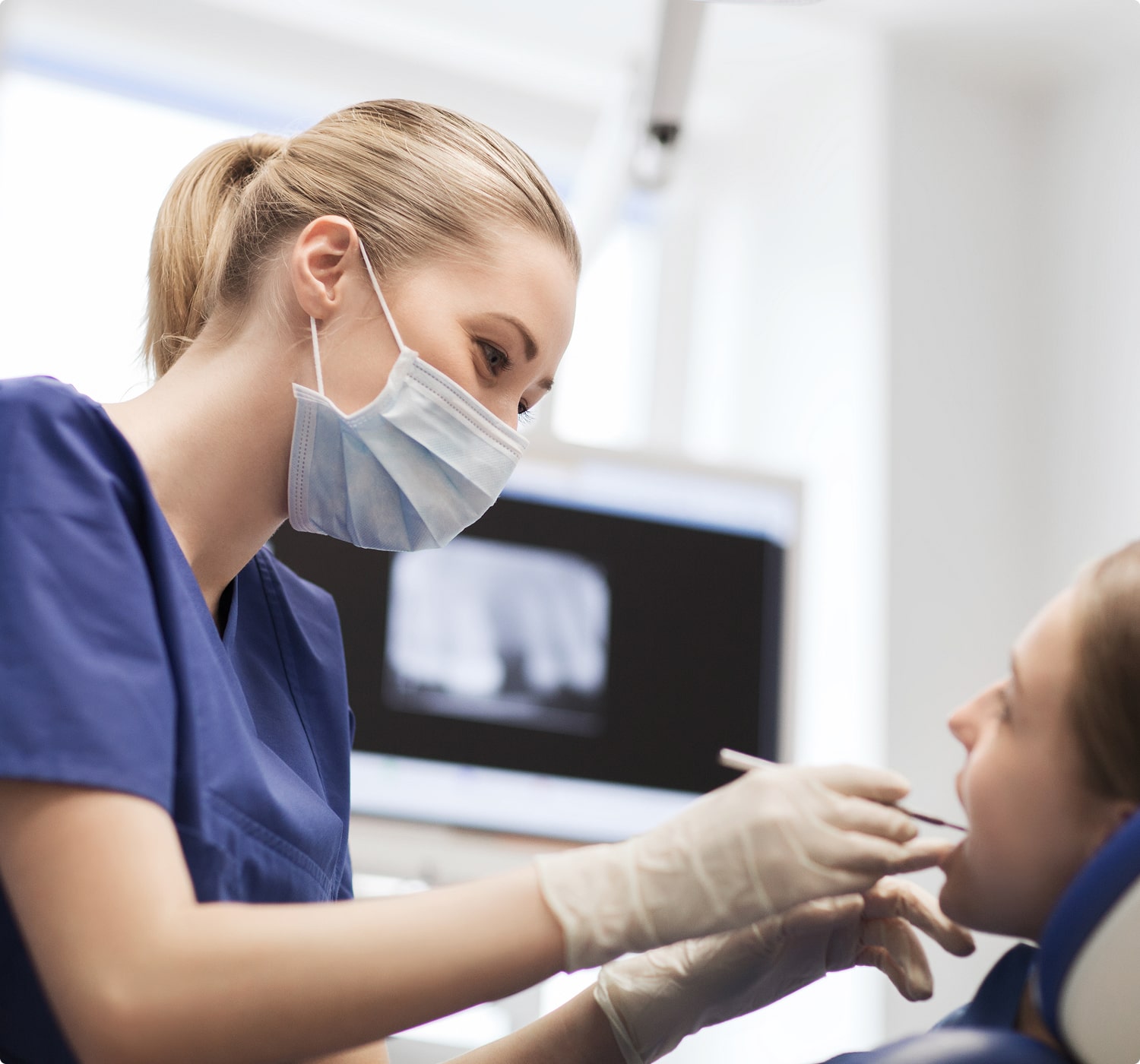Relief from Jaw Pain, Headaches, and Tension
TMJ disorder can affect more than just your mouth. It often leads to discomfort that radiates through the head, neck, and shoulders, impacting your daily life and overall well-being. At Family Smile Centers in St. Charles County, our goal is to restore balance between the jaw joints, muscles, and teeth—helping you feel better and function more comfortably. With advanced technology and a patient-first approach, we take the time to understand what’s causing your symptoms so we can create a personalized treatment plan that improves both short-term comfort and long-term stability.
What Is TMJ Disorder?
The temporomandibular joints (TMJs) sit on each side of your face, connecting your lower jaw to the skull. Working together with muscles, ligaments, and teeth, they let you speak, chew, yawn, and move your jaw smoothly in multiple directions. When these joints or their supporting muscles become inflamed, misaligned, or overworked, a group of symptoms—called TMJ disorder (TMD)—can appear. Common signs include jaw pain or stiffness, clicking or popping, headaches, ear pain or fullness, facial tenderness, and limited or uneven jaw movement. TMD can stem from clenching or grinding, bite misalignment, arthritis, past injury, or cumulative stress on the system over time. The good news: with a careful evaluation and targeted, conservative treatment, most people find meaningful relief.


Common Symptoms of TMJ Dysfunction
Because the TMJs are closely connected to other muscle groups in the face and neck, symptoms of TMD can vary widely. You may notice pain or clicking in the jaw, or experience symptoms that seem unrelated to your bite at first glance.
Symptoms May Include
If you’re experiencing one or more of the following, it could indicate a TMJ-related issue that’s worth evaluating:
- Jaw pain or soreness when chewing or talking
- Clicking, popping, or locking of the jaw
- Frequent headaches or migraines
- Facial or neck muscle tension
- Ringing in the ears (tinnitus)
- Difficulty opening or closing the mouth fully
- Worn, chipped, or sensitive teeth due to grinding
These symptoms can worsen over time without treatment, making early diagnosis and care especially important.
Or Call (636) 757-1800
Our Neuromuscular Approach to TMJ Care
Neuromuscular dentistry focuses on more than just teeth—it takes into account the relationship between your jaw joints, muscles, nerves, and bite alignment. Rather than masking symptoms, we identify the underlying cause of dysfunction and use therapeutic strategies to retrain your jaw for a more natural, pain-free position. This approach is non-surgical and personalized to each patient’s anatomy and symptoms. By relieving muscle tension and adjusting the bite over time, we can reduce or eliminate discomfort and restore normal function.
Advanced Diagnostics for TMJ Evaluation
Effective treatment starts with an accurate diagnosis. At Family Smile Centers in St. Charles County, we use advanced tools to evaluate how your jaw and muscles are working together. These diagnostics allow us to see how your bite affects muscle activity and identify areas of imbalance or strain.
Our Tools Include
We combine technology with clinical experience to get a clear picture of your jaw health.
- Electromyography (EMG): Measures muscle tension and electrical activity in the face and jaw during movement and rest.
- TENS (Transcutaneous Electrical Nerve Stimulation): Applies gentle electrical pulses to relax the muscles and establish a natural resting jaw position.
- Bite analysis and jaw tracking: Evaluates how your teeth come together and how your jaw moves in space, helping us detect imbalances in your bite.
These tools give us the data we need to plan treatment that’s precise, predictable, and customized.
Or Call (636) 757-1800


The DNA Appliance and Phase 2 Rehabilitation
For many patients, non-surgical relief begins with a custom oral appliance that repositions the jaw gently and encourages balanced muscle function. One such device we use is the DNA Appliance, which helps promote proper jaw development and airway alignment. Once symptoms have improved and the jaw is in a more stable position, we often move into Phase 2 rehabilitation. This may include orthodontic or restorative procedures to maintain long-term results.
Treatment May Include
TMJ care is often delivered in phases to allow for healing, monitoring, and permanent correction.
- A wearable oral appliance, typically worn at night or during specific times of day
- Orthodontic treatment to align the bite and prevent future imbalance
- Restorative procedures to rebuild worn or damaged teeth
- Ongoing bite evaluations to ensure muscles and joints stay balanced
We customize each treatment plan based on your symptoms, diagnostic results, and long-term oral health goals.





A Practice Committed to Advanced TMJ Care
Dr. Robert Weldon Thompson II is strongly committed to advancing his clinical knowledge in neuromuscular dentistry. He is actively pursuing a fellowship with the International College of Craniomandibular Orthopedics (ICCMO), a respected organization focused on non-surgical, muscle-guided approaches to TMJ therapy. This dedication ensures that our patients receive care rooted in both clinical research and hands-on experience. As techniques and technologies evolve, our team remains at the forefront of non-invasive TMJ care.

Is TMJ Treatment Right for You?
Many people live with jaw pain, tension headaches, or bite discomfort for years—sometimes told there’s “nothing wrong.” A neuromuscular evaluation can reveal what’s really going on and point to answers. We welcome second opinions and patients seeking a non-surgical path; our care is conservative, comprehensive, and personalized to you.
Chronic jaw pain doesn’t have to be part of your day. With the right assessment and a plan tailored to your needs, you can experience less tension, fewer headaches, and greater comfort. Let Family Smile Centers in St. Charles County help you take the first step toward balance, relief, and long-term wellness—starting with your smile.
Or Call (636) 757-1800
Helpful Tips & Info
Patient Education Articles
The Ultimate Guide to Preventive Dental Care for Families
Preventive dental care is the foundation of a healthy smile. Families in St. Peters, [...]
Fixed Implant Bridges vs. Implant Overdentures
If you are missing most or all of your teeth, dental implants can restore [...]
Clear Aligners vs. Traditional Braces: Which Orthodontic Treatment Is Right for You?
Choosing the right orthodontic treatment is an important step toward achieving a healthier, more [...]










